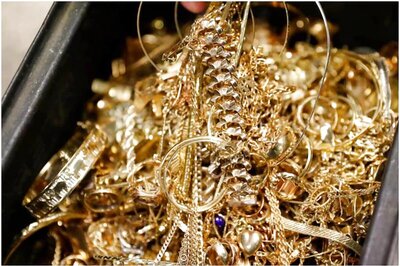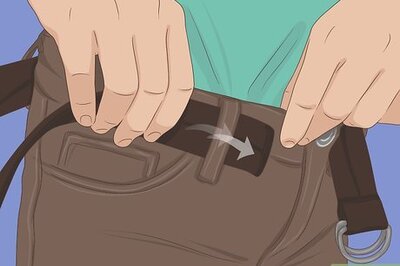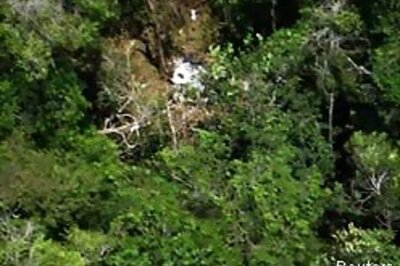
views
New Delhi Over 125 Indian companies are among 2,000 worldwide firms that made illegal payments to Saddam Hussein's regime for contracts in UN's oil-for-food programme, an inquiry into the controversial deal has revealed.
The independent inquiry committee headed by Paul Volcker presented its findings on Thursday.
The report found big companies like Siemens, Volvo, and Daimler Chrysler were among those who paid bribes to win contracts from Saddam's government.
Presenting his report Volcker said that bribes of $1.8 billion were paid and this was all because of UN mismanagement.
"I want to emphasise that the corruption of the programme by Saddam and many participants could not have been nearly so pervasive if there had been more discipline management by the UN and its agencies," said Volcker.
The companies supplied diverse products including food, medicines, electrical goods, steel and tea. Most of the other companies involved are American, Russian and Chinese.
The report said that the kickback policy for humanitarian goods began in mid 1999 with Iraq's effort to collect 'costs' for transporting goods to inland destinations after their arrival by sea at Umm Qasr Port.
According to the report, Saddam received much more than $11 billion from smuggling oil to Jordan and other neighbouring countries.
The Committee charged the Security Council and the UN Secretariat as also contractors with failure at the crucial time when companies started making payments.
The companies and other individuals, who paid kickbacks to sell humanitarian goods, came from 66 countries while those paying illicit surcharges on oil purchases came from or registered in some 40 states.
The programme, the report said, was three-year-old when the Iraqi regime began openly to demand illicit payment from customers.
"The oil overseers passed on their concerns in this regard to the Secretariat and to the Security Council but little action was taken," the report said.
Volcker said, by the year 2000, the imposition of kickbacks and surcharges by the Iraqi regime brought about emergence of front companies and international trading concern prepared to engage in these illicit payments.
It was at his point that the 'gatekeepers', the Secretariat and the Security Council, and UN contractors failed most grievously in their responsibility to monitor the integrity of the programme.
Most of the charges were paid through deposits in bank accounts in Jordan and Lebanon or through cash payments made at Iraqi embassies, the committee found.
With a few exceptions, it says, the two banks used to collect surcharge were Fransabank in Lebanon and Jordan National Bank (Ahil Bank) in Jordan.
"Not only were these payments authorised but it was an easy matter for Iraq to impose inland transportation fees that far exceeded is actual transportation costs," it adds.
The report said that many companies not willing to pay openly would make payments to third parties or agents without examining or admitting to the likely purpose of these payments.
During the phase two of the programme, the report said, Iraq began directing oil allocations to particular countries and individuals.
Later Iraqi leaders decided to deny to American, British and Japanese companies direct oil allocations due to opposition of these countries to lifting of sanctions and gave preferential treatment to France, Russia and China.
The three countries were permanent members of the Security Council perceived to be favourable to lifting of the embargo.
Under oil for food programme, Iraq was entitled to choose whom to sell oil and from whom to buy humanitarian goods but each and every contract had to be approved by the Security Council's sanctions committee in which the United States, Britain, Russia, France and China had veto power.
(With PTI inputs)



















Comments
0 comment